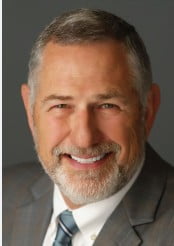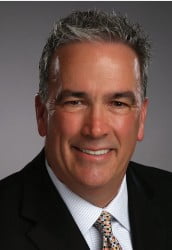Drs. Joel C. Small and Edwin McDonald say that coaching your team can help build an optimal practice culture.
 Drs. Joel C. Small and Edwin McDonald discuss ways to effectively develop your team
Drs. Joel C. Small and Edwin McDonald discuss ways to effectively develop your team
If you ever played a team sport, you likely appreciate the necessity of coaching. A coach is that person who, like an orchestra’s conductor, keeps the team synchronized and harmonized. Coaches are the people who understand everyone’s individual and necessary contribution to a desired result. They also see the big picture and yet understand the many subtle nuances that move their team from average to peak performance.
Coaching a healthcare team for peak performance is similar in many ways to coaching a team sport. At Line of Sight Coaching, we help doctors become more “coach-like” by teaching simple skills that have been proven to be very effective in creating and sustaining high performing teams.
The following are some of the most important skill sets necessary for coaching a team to peak performance.
Leadership
All good coaches are good leaders. The very act of coaching requires leadership skills. Leaders are realists who can provide unfiltered, honest assessments of their organization’s current status. They are also visionaries who see beyond the short term and communicate a long-term vision that is both compelling and motivating for the team. They provide the resources and support necessary for the team to beyond the status quo and toward a preferred future.
Self-awareness
When 75 members of the Stanford Graduate Business School’s Advisory Council were asked to recommend the most important capability for leaders to develop, their answer was nearly unanimous — self-awareness. The same is true for coaches. Effective coaches have a high degree of self-awareness and emotional intelligence. They understand how their words and actions are perceived by their team. Armed with this vital knowledge, they are capable of “self-regulating” their interactions with their team to create an environment conducive to peak performance.
Vision
What does peak performance look like? How will you know when you have achieved peak performance? These are critical questions that must be answered prior to initiating a peak performance initiative. Like any goal-oriented initiative, having a clear picture of what you are trying to achieve is critical to achieving the goal. Collaborate with your team when creating the vision. The more input they have, the more buy-in you will receive.
People developers
One of the most critical tasks for any leader/coach is the development of human capital. Research has shown that the very best and most profitable businesses are those that have made significant investments in their people.
There are two effective ways to develop your team. The first and more obvious way is to improve their technical skill set. This is often referred to as “horizontal development” and is an important step in creating high performing teams. The second and less obvious way to develop a team is to encourage them to think and act both independently and interdependently. This is referred to as “vertical development” and involves the development of the individual and team’s mental capacity and skill set. Developing a team’s capability to think and act both independently and interdependently, and understanding the distinction and value of each are foundational to achieving peak performance.
Consider this: If we insist on making every decision in our practice, we become an unnecessary bottleneck, and we are unknowingly undermining our team’s ability to reach peak performance. Many of the nonclinical decisions can and should be made by our team. By allowing team members to think and act within predetermined guidelines, we are taking these burdens off our plate, removing unnecessary barriers to efficiency, and promoting individual and team confidence and growth. What is important is that each team member has the support and authority to act independently while considering the impact of their decisions on the entire team. This is when interdependent thinking, often requiring collaboration with other team members, is most important and most valuable.
Simple coaching skills can be very effective in creating peak performing teams. Michael Bungay Stanier has written two excellent books that teach useful coaching skills for anyone wanting to take their team to higher levels of performance. Stanier’s first book, The Coaching Habit, presents seven simple coaching questions that doctors will find invaluable when attempting to improve individual and team performance. His second book, The Advice Trap, serves as a primer for individual and team vertical development. Anyone interested in developing these vital skill sets should make it a point to read both books.
Reflection
One of the best and most effective ways to achieve peak performance is through reflection. At the end of each day or the beginning of the next day, take a few minutes to reflect on the previous day. What went right? What could have been improved and why? What was a barrier to achieving peak performance?
Again, using simple coaching skills and language will remove the team’s fear of offering an honest and unfiltered self-appraisal. These few minutes will prove to be one of the best team building techniques, and doctors will begin to see the staff improve their level of performance faster than they ever thought possible.
In summary, becoming more coach-like does not require rigorous training or certification. All can learn simple skills that will prove invaluable in moving their organization to higher levels of productivity and profitability. More importantly, coaching your team is arguably the best way to sustain peak performance while simultaneously building an optimal practice culture. Do yourself a favor and read Michael Stanier’s books. You will be very glad that you did.
Coaching staff through change makes your staff stronger. Read more about how to facilitate change in his article “Leading through Change” here: https://endopracticeus.com/leading-through-change/
Stay Relevant With Endodontic Practice US
Join our email list for CE courses and webinars, articles and more..


 Drs. Joel C. Small and Edwin (Mac) McDonald have a total of over 75 years of dental practice experience. Both doctors are trained and certified Executive Leadership Coaches. They have joined forces to create Line of Sight Coaching, a business dedicated to helping their fellow dentists discover a better and more enjoyable way to create and lead a highly productive clinical dental practice. Through their work, clients experience a better work/life balance, find more joy in their work, and develop a strong practice culture and brand that positively impact their bottom line. To receive their free ebook, 7 Surprising Steps to Grow Your Practice Through Leadership, go to
Drs. Joel C. Small and Edwin (Mac) McDonald have a total of over 75 years of dental practice experience. Both doctors are trained and certified Executive Leadership Coaches. They have joined forces to create Line of Sight Coaching, a business dedicated to helping their fellow dentists discover a better and more enjoyable way to create and lead a highly productive clinical dental practice. Through their work, clients experience a better work/life balance, find more joy in their work, and develop a strong practice culture and brand that positively impact their bottom line. To receive their free ebook, 7 Surprising Steps to Grow Your Practice Through Leadership, go to 